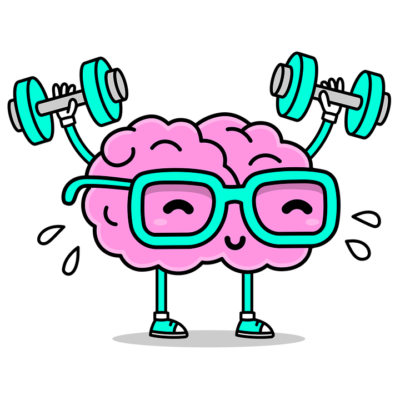Dementia can take many forms, with Alzheimer’s disease being the most prevalent. Lewy body dementia is one kind of dementia. According to the National Institutes of Health, it affects more than 1 million Americans and is the second most frequent form of dementia after Alzheimer’s.
Lewy body dementia generally affects adults over 50, while it can also affect younger people. Here is more information on Lewy body dementia, including its causes, symptoms to look out for, and treatment options.
What is the Lewy Body Disease Dementia?
People with Lewy body dementia and those with Alzheimer’s share several characteristics. It may be challenging to discern between the two disorders because both have tangles and plaques in their brains. In addition, Lewy body dementia has several symptoms that differ from Alzheimer’s.
The National Institutes of Health state that there are numerous different symptoms associated with Lewy body dementia. These include the behavioral, cognitive, physical, and sleep domains.
Behavioral and Mood Symptoms of Lewy Body Disease
Agitation is restlessness, hand wringing, impatience, pacing, and verbal repetition.
Anxiety: When a loved one is not there, you may feel furious or afraid or keep asking the same questions.
Apathy is the absence of interest in routine daily activities or events and a reduced desire for social connection.
Firmly held yet unfounded beliefs or opinions, such as the notion that a deceased spouse is still alive, are known as delusions.
Depression is a mood illness that results in a constant sense of melancholy and disinterest. Extreme, unreasonable mistrust of other people, their words, and their actions are known as paranoia.
Cognitive Symptoms of Lewy Body Disease
Non-visual hallucinations, such as hearing or smelling things that aren’t there, are potential symptoms of Lewy body disease.
Significant decline in mental capacity: Thoughts may be confusing, irrational, or poorly ordered. Additionally, there can be poor judgment, language and math difficulties, and misunderstandings regarding the time and location.
Unpredictable behavior – Unexpected shifts from day to day, and occasionally even within the day, in alertness, attention, focus, and wakefulness. About 80% of patients experience visual hallucinations, in which they perceive objects that are not there.
Movement Symptoms of Lewy Body Disease
Some older people may experience balance challenges, but those with Lewy body dementia are more at risk of falling repeatedly.
Having trouble swallowing is possible for those with Lewy body disease. Those who experience it may not eat enough.
Frozen stances, sluggish motion, or shuffling steps are signs that someone may need help walking, such as from a walker or cane.
Less facial expression – Without emotion, faces may appear “frozen.”
Loss of coordination: People may experience more mishaps, such as falling, or become unable to handle daily duties.
Stretching treats tightness or stiffness in the muscles.
Tremor or shaking, usually at repose – These symptoms could be Parkinson’s signs.
Weak voice: People who have trouble speaking may become estranged from others.
Sleep-Associated Symptoms of Lewy Body Disease
According to the National Institutes of Health, an indication of excessive daytime sleepiness is sleeping for longer than two hours during the day.
An inability to fall asleep, stay asleep, or wake up too early and then have trouble falling back asleep are all examples of insomnia.
REM sleep behavior disorder, also known as dream-enacting behavior, is characterized by violent arm and leg movements, vocalizations, and vivid, unsettling nightmares.
Restless leg syndrome is an uncontrollable need to move the legs while sitting or lying down, usually in the evening or at night.
Other Symptoms of Lewy Body Disease
Aside from the symptoms listed above, some of the other symptoms of Lewy body disease might include the following:
- High blood pressure issues
- Radical changes to body temperature
- Constipation
- Reduced ability to smell
- Fainting, dizziness, or vertigo
- Falls often
- Sensitivity to cold and heat
- Sexual dysfunction
- Incontinence
Lewy body dementia’s early stages may have minor symptoms that don’t significantly interfere with daily activities. However, because this is a progressive illness, patients may require more assistance over time as their ability to move and think declines. As a result, Lewy body dementia patients may depend entirely on others for care in their latter stages.
How to Treat Lewy Body Disease?
The progression of Lewy body dementia cannot be slowed down or stopped by any medications. Therefore, doctors work to make their patients more comfortable. Medical professionals use the following methods to make dealing with Lewy body disease easier.
Depression, which is frequent in these circumstances, may be treated with drugs known as selective serotonin reuptake inhibitors (SSRIs). SSRIs are better known as antidepressants.
Administering antipsychotics to treat behavioral problems in Alzheimer’s patients must be handled cautiously because up to 50% of people with Lewy bodies may experience significant adverse effects, such as acute disorientation, altered consciousness, delusions or hallucinations, trouble swallowing, or worsening symptoms.
Experts frequently use Cholinesterase inhibitors to treat Alzheimer’s patients with cognitive problems. They might also alleviate some Lewy body symptoms.
Maintain Quality of Life with Infinite Love Homecare
Unfortunately, the medical industry can’t do much to stop Lewy body disease’s progression. The best it can do is ease the suffering associated with the condition as best it can. Infinite Love Homecare can help you in this regard.
We specialize in helping our clients maintain quality of life and deal with the medical problems that come with age. Some of our services enable the elderly with daily living, while others are geared towards exceptional cases such as surgery recovery, specialized home care, and more.
For a free in-home consultation, call us at (949) 529-4130 or send us a message on our Contact Us page. Our address is City Tower, 333 City Boulevard, West Suite 1700, Orange, CA 92868. We also offer residential care facilities for the elderly with top-notch cleanliness, insulation, warmth, and security.




